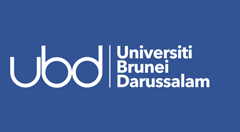ASEAN Journal on Science and Technology for Development
Abstract
The larval stage of the darkling beetle, Tenebrio molitor, often referred to as the yellow mealworm, has received significant attention as a promising source of high-quality protein for human consumption due to its exceptional nutritional profile. This study focused on assessing the antioxidant and antimicrobial activities of protein concentrates and hydrolysates obtained from mealworm specimens raised under distinct dietary conditions. One cohort of mealworms was sustained on food waste comprising rice bran, milled corn, and carrots (self-bred) (SM), while another group was exclusively provided with rice bran (commercially fed) (CM). Enzymatic hydrolysis of mealworm protein was accomplished using protease enzymes (Maxipro NPU). The findings demonstrated that protein hydrolysates from yellow mealworms, particularly those reared on food waste, exhibited significantly higher antioxidant and antimicrobial activities compared to protein concentrates. The results revealed that SM-based protein hydrolysates exhibited a DPPH free radical scavenging activity of 5.96±0.95 mg of TEAC/g and a ferric reducing antioxidant activity (FRAP) assay value of 2.07±0.07 mg of Fe (II)/g. Our study also highlighted that protein hydrolysates derived from both SM and CM showed an antimicrobial effect against tested strains Escherichia coli and Staphylococcus aureus bacterial strains compared to protein concentrates. In conclusion, our results highlighted enhanced antioxidant and antimicrobial properties of hydrolyzed mealworm protein samples in comparison to their non-hydrolyzed counterparts.
Publication Date
2024
Received Date
18-September-2023
Revised Date
12-October-2023
Accepted Date
20-October-2023
Recommended Citation
Hong, Shyang-Pei; Phuah, Eng-Tong; Wong, Wey-Lim; Lee, Yee-Ying; Tang, Teck-Kim; and Yassoralipour, Ali
(2024)
"Antioxidant and Antimicrobial Properties of Yellow Mealworm (Tenebrio molitor) Protein Concentrates and Hydrolysates Derived from Varied Dietary Regimens,"
ASEAN Journal on Science and Technology for Development: Vol. 40:
No.
2, Article 15.
DOI: https://doi.org/10.61931/2224-9028.1538
Available at:
https://ajstd.ubd.edu.bn/journal/vol40/iss2/15

